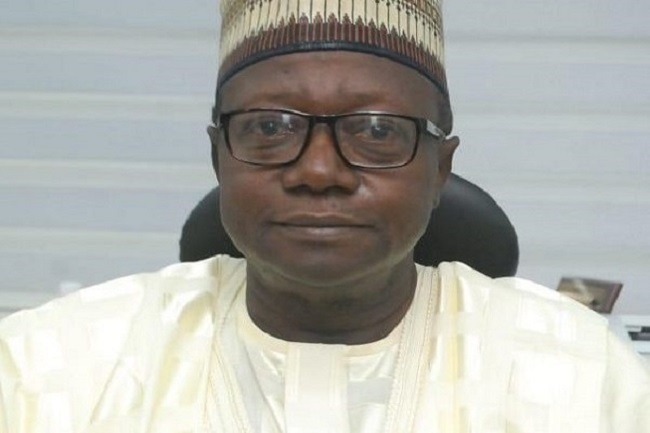The Chairman of the National Population Commission (NPC), Nasir Isa Kwarra, has called for urgent strategic investments in healthcare, education, climate resilience and data-driven policies.

Speaking at the 13th Annual International Conference of the Population Institute of Nigeria on Monday, February 24, 2025, in Abuja, Kwarra said that this is to mitigate the challenges posed by Nigeria’s rapidly growing population.
He said that without deliberate policy interventions, the country’s demographic expansion could exacerbate social and economic inequalities.
“The fundamental question before us is whether our population growth will become a driver of economic progress or deepen existing socioeconomic disparities,” he said.
The NPC chairman highlighted maternal and child health as a pressing concern, noting that Nigeria still records one of the highest maternal mortality rates globally.
Citing the Nigeria Demographic and Health Survey (NDHS) 2018, he said that the maternal mortality rate had declined from 576 deaths per 100,000 live births in 2013 to 512 per 100,000 in 2018.
He said that more targeted interventions were needed.
“Access to quality maternal healthcare services, particularly in rural areas, remains inadequate.
“Too many women still die from preventable complications during childbirth.
“Strengthening healthcare infrastructure, improving access to skilled birth attendants, and expanding emergency obstetric services are non-negotiable if we are to reverse this trend,” he said.
Kwarra said that climate change posed a significant challenge to Nigeria’s population dynamics, impacting food security, water availability, and human safety.
He called for the adoption of climate resilience strategies to safeguard the country’s natural resources and promote sustainable development.
“As climate change continues to affect food security, water availability, and human safety, adopting climate resilience strategies is essential.
“Proactive policies must be implemented to enhance environmental sustainability, including encouraging renewable energy adoption, promoting afforestation, and enforcing land-use regulations,” he said.
He urged stakeholders to integrate climate resilience with population management strategies to ensure a sustainable future for Nigeria’s growing population
Kwaara also addressed family planning and reproductive health choices, noting that Nigeria’s contraceptive prevalence rate (CPR) among married women stands at just 20 per cent.
He said that rural areas experienced lower contraceptive usage of 5.6 per cent compared to urban areas, 3.9 per cent, leading to higher birth rates and increasing the strain on the nation’s health system.
He called for expanded access to family planning services, stating that empowering women with contraceptive choices and reproductive health education would help regulate birth rates and improve overall family well-being.
The rapid expansion of Nigerian cities due to rural-to-urban and urban-to-urban migration is another major concern, according to the NPC chairman.
He said that cities like Lagos, Kano, Abuja, Port Harcourt, and Kaduna were experiencing overcrowding, inadequate housing, and limited access to essential services such as water, electricity, and healthcare.
“Unplanned urbanisation is leading to the proliferation of informal settlements, environmental degradation, and a decline in the quality of life.
“We must integrate smart urban planning strategies and invest in modern infrastructure to support our growing cities,” he said.
To effectively address Nigeria’s demographic challenges, Kwaara stressed the need for accurate and reliable data to inform policy decisions.
He emphasised that demographic insights should guide investments in education, job creation, and public services to ensure inclusive growth.
“With one of the youngest populations in the world, Nigeria’s youth represent a powerful force for innovation and economic transformation.
“However, without adequate education, employment, and entrepreneurship opportunities, this potential could turn into a crisis,” he said.
The NPC chairman called for collaborative efforts between the government, private sector, and civil society to harness Nigeria’s demographic potential for sustainable development.
He said that strategic investments in healthcare, family planning, urban planning, and youth development were crucial to ensuring that population growth translates into economic prosperity rather than a burden on national resources.
“Nigeria’s population is both a challenge and an opportunity. It is up to us to make the right investments now to secure a prosperous future for the nation,” he said.
By Abujah Racheal
